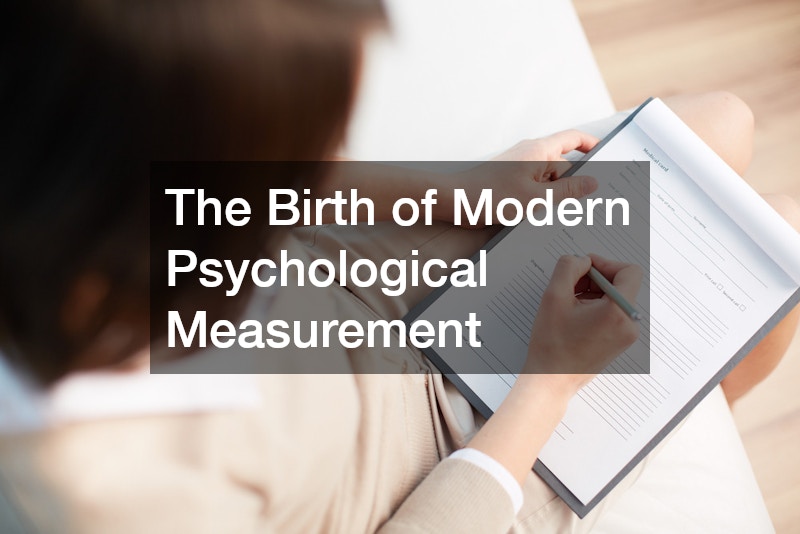The use of structured assessments to measure human abilities and characteristics has become an integral part of modern psychology, education, and organizational development. These tools help evaluate cognitive capabilities, personality traits, and behavioral tendencies, but their history is often overlooked. Understanding the origins of these assessments provides valuable context for their evolution and the role they play in today’s world.
This article explores the historical development of psychometric tests, highlighting key milestones and the impact they have had on various fields.
Early Concepts of Measuring Mental Abilities
The roots of psychological measurement date back to ancient civilizations. Philosophers and scholars sought to understand human behavior and intelligence long before standardized tools were created.
1. Ancient Philosophy
The earliest ideas about mental ability were rooted in philosophy. Ancient Greek thinkers, such as Plato and Aristotle, explored the nature of intelligence, character, and human potential. Their work laid the foundation for later scientific inquiries into psychological traits.
In ancient China, written examinations were used to evaluate candidates for civil service roles as early as 2200 BCE. Although not directly linked to psychology, this practice demonstrated an early interest in objectively assessing individuals’ capabilities.
2. Emergence of Scientific Thought
The Renaissance and Enlightenment periods brought a shift toward empirical observation and scientific inquiry. Thinkers like René Descartes and John Locke began to investigate the workings of the human mind, paving the way for systematic approaches to measuring mental faculties.
The Birth of Modern Psychological Measurement

The development of formal psychological assessments began in the late 19th and early 20th centuries, coinciding with the rise of psychology as a scientific discipline.
1. Francis Galton and the Beginnings of Measurement
Francis Galton, an English polymath and cousin of Charles Darwin, is often considered one of the pioneers in this field. In the late 1800s, Galton introduced the concept of quantifying individual differences. He developed methods to measure physical and mental traits, such as reaction times, sensory acuity, and intelligence.
Galton also founded the first laboratory dedicated to studying human variability and invented the statistical technique of correlation, which remains a cornerstone of psychological research.
2. The First Intelligence Tests
In the early 20th century, Alfred Binet and Théodore Simon in France created one of the first tools designed specifically to assess cognitive abilities. Commissioned by the French government to identify children needing additional educational support, their work led to the development of the Binet-Simon Scale in 1905.
The Binet-Simon Scale evaluated various mental functions, such as memory, attention, and problem-solving skills. It introduced the concept of mental age, which compared an individual’s cognitive performance to the average performance of their age group.
3. Standardization and IQ Testing
In 1916, Lewis Terman, a psychologist at Stanford University, adapted the Binet-Simon Scale for use in the United States. Known as the Stanford-Binet Intelligence Test, this adaptation introduced the intelligence quotient (IQ) as a standardized score. IQ testing quickly gained popularity, becoming a key tool in educational and psychological evaluations.
Expansion of Psychometric Applications
As the field evolved, assessments began to address not only intelligence but also personality and behavioral tendencies.
1. Personality Assessments
The study of personality gained traction in the early 20th century, with researchers like Carl Jung exploring psychological types. Jung’s work influenced the development of tools such as the Myers-Briggs Type Indicator (MBTI), which categorized individuals into personality types based on preferences in thinking, feeling, and decision-making.
In 1921, Hermann Rorschach introduced the Rorschach Inkblot Test, a projective method designed to uncover unconscious thoughts and emotions. While projective tests have faced criticism for their subjectivity, they played a significant role in advancing the study of personality.
2. World Wars and the Growth of Assessments
The two World Wars had a profound impact on the development and application of psychological assessments. During World War I, the U.S. Army used tools like the Army Alpha and Beta tests to evaluate soldiers’ cognitive abilities and assign them to suitable roles.
In World War II, personality assessments gained prominence, helping military organizations identify individuals with leadership potential or resilience under pressure. These wartime innovations laid the groundwork for the widespread use of assessments in organizational and clinical settings.
The Role of Technology in Advancing the Field
The latter half of the 20th century saw rapid advancements in technology, which transformed the way psychological assessments were designed, administered, and analyzed.
1. The Rise of Computers
In the 1960s and 1970s, the introduction of computers revolutionized data collection and analysis. Computerized testing made it possible to administer assessments more efficiently and analyze results with greater precision. This shift also enabled the creation of adaptive testing, where the difficulty of questions adjusts based on the test-taker’s performance.
2. Statistical Advancements
The development of sophisticated statistical methods, such as factor analysis and item response theory, improved the reliability and validity of assessments. These techniques allowed researchers to create more accurate tools and refine existing ones.
3. Online Testing
The advent of the internet brought assessments to a global audience. Online platforms made it easier for businesses, educators, and researchers to administer tests remotely, increasing accessibility and convenience.
Contemporary Uses and Impact
Today, psychological assessments are used in a wide range of fields, including education, healthcare, and business. Their applications continue to expand as new tools and technologies emerge.
1. In Education
Educational institutions use assessments to identify learning disabilities, tailor instructional methods, and measure academic achievement. Standardized testing remains a key component of evaluating student performance.
2. In Healthcare
Clinicians rely on psychological tools to diagnose mental health conditions, assess cognitive decline, and develop treatment plans. Advances in neuroscience and psychology have led to more nuanced tools that address a wide range of psychological and neurological conditions.
3. In the Workplace
Businesses use assessments to make data-driven decisions in hiring, training, and team building. By evaluating traits like problem-solving ability, emotional intelligence, and leadership potential, companies can build stronger, more cohesive teams.
Ethical Considerations and Challenges
While psychometric tests offer valuable insights, they are not without challenges. Issues such as cultural bias, misuse, and ethical concerns remain critical topics of discussion.
1. Cultural Bias
Assessments developed in one cultural context may not be equally valid in another. Researchers and practitioners must account for cultural differences to ensure fair and accurate evaluations.
2. Privacy and Consent
The sensitive nature of psychological data requires strict adherence to ethical guidelines. Test-takers must provide informed consent, and their data must be handled with confidentiality and care.
3. Avoiding Overreliance
While these tools provide valuable information, they should not replace human judgment. Combining results with other evaluation methods ensures a more comprehensive understanding of an individual’s abilities and traits.
The journey of psychometric tests from early philosophical inquiries to sophisticated, technology-driven tools reflects humanity’s enduring quest to understand itself. From measuring intelligence to uncovering personality traits, these tools have become indispensable across many domains.
As they continue to evolve, psychological assessments offer the potential to unlock new insights into human behavior, helping individuals and organizations make better decisions and reach their full potential. Understanding their origins not only highlights their importance but also underscores the responsibility to use them ethically and effectively.
